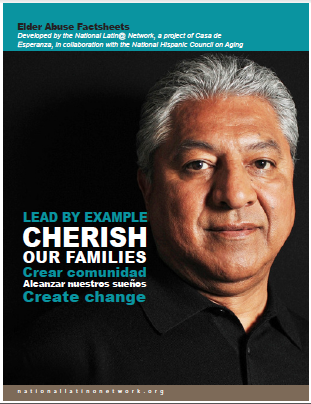Working at the intersections of violence against women in Latin@ communities requires intentionality and a deep understanding of the lived realities of Latin@s in their cultural context. This section of the special collection focuses on subgroups within Latin@ communities with the purpose of highlighting specific strategies and approaches when responding to violence.
Acknowledging that survivors’ lives are complex as a starting point in our analysis, as well as the multiple dimensions of their identities, are critical steps towards achieving social justice for ALL. As stated by Gloria Anzaldúa, Living on borders and in margins, keeping intact one's shifting and multiple identity and integrity, is like trying to swim in a new element, an "alien" element.
In the spirit of honoring these complexities, the sections that follow explore some of the dimensions that could make up the identities of Latin@ survivors and their allies.










